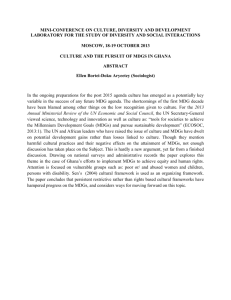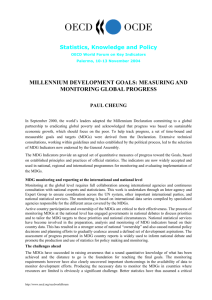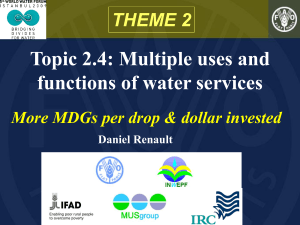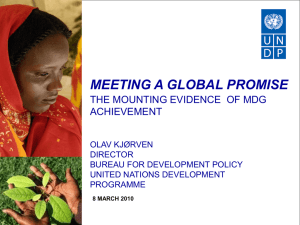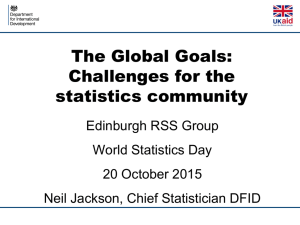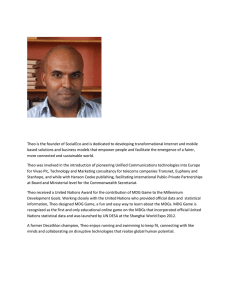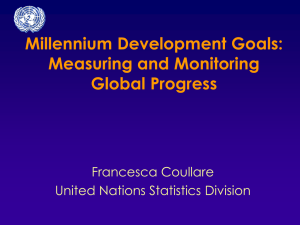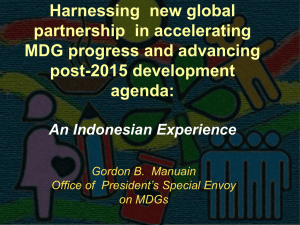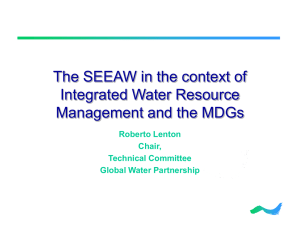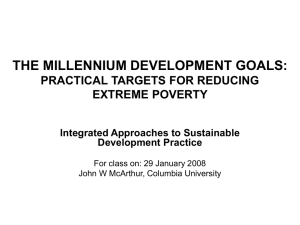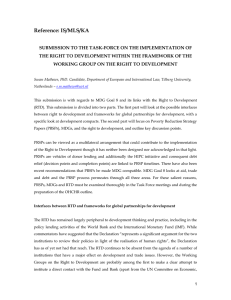Powerpoint presentation by Fran ois Bourguignon
advertisement
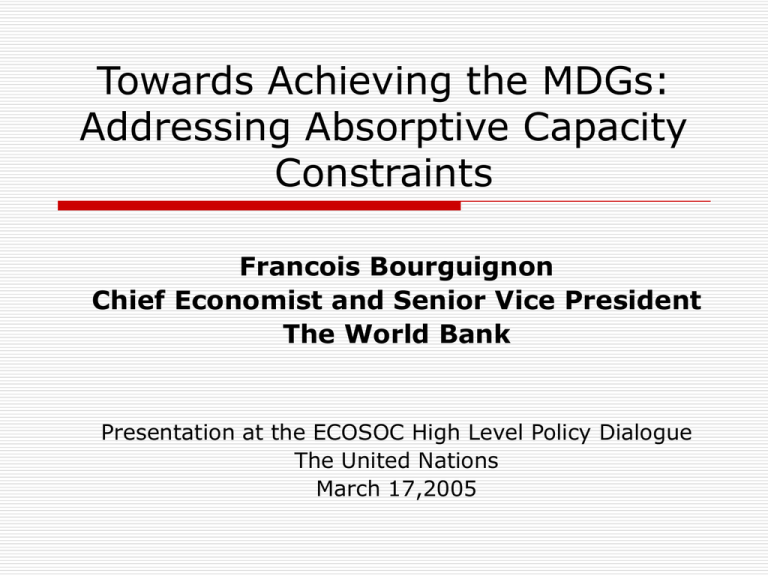
Towards Achieving the MDGs: Addressing Absorptive Capacity Constraints Francois Bourguignon Chief Economist and Senior Vice President The World Bank Presentation at the ECOSOC High Level Policy Dialogue The United Nations March 17,2005 Aid absorptiveness Return to Aid (e.g. GDP growth rate) Country 1 B A Volume of aid (e.g. Aid/GDP) Country 2 Illustration from of the Ethiopia Model (Mams, WB) MDG 1: Share of Population Living on $1 (PPP) per day or less (%) 38 36 34 32 30 28 26 24 22 20 18 2002 2003 2004 2005 2006 2007 Base case 2008 2009 2010 Infrastructure only 2011 2012 Full MDGs 2013 2014 2015 MDG 2: Net Primary School Completion Rate (%) 110 100 90 80 70 60 50 40 30 20 2002 2003 2004 2005 2006 2007 2008 2009 2010 2011 2012 2013 2014 2015 Base case Infrastructure only Full MDGs MDG 4: Under-Five Mortality Per 1,000 Live Births 170 150 Base 130 Infrastructure 110 90 Full MDGs 70 50 2002 2003 2004 2005 2006 2007 2008 2009 2010 2011 2012 2013 2014 2015 Foreign grants necessary to reach the MDGs (US dollar per capita) 70 60 50 Full MDGs 40 30 Infrastucture 20 Base 10 2002 2003 2004 2005 2006 2007 2008 2009 2010 2011 2012 2013 2014 2015 Real Wage for Workers with SecondarySchool Education (Birr) 3200 3000 Infrastructure 2800 2600 Full MDGs 2400 2200 Base 2000 2002 2003 2004 2005 2006 2007 2008 2009 2010 2011 2012 2013 2014 2015 Real exports as a share of GDP 18 16 14 12 10 8 6 4 2 0 2002 2003 2004 2005 2006 2007 2008 2009 2010 2011 2012 2013 2014 2015 Base case Infrastructure only Full MDGs PV of extra MDG grants ($bn) Time sequencing of spending and MDG costs (excl. Infrastructure) 12 11 No productivity gain 10 9 8 7 Productivity gain 6 5 0 10 20 30 40 50 Share of extra MDG grants (%) 2003-09 60 70
